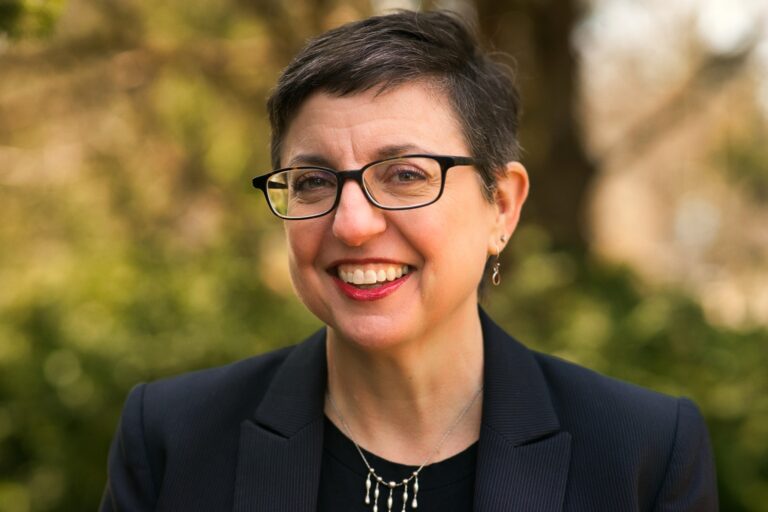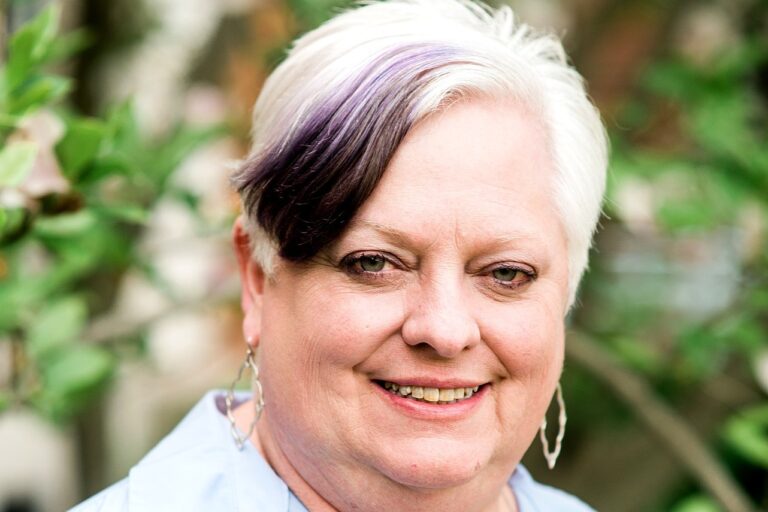Wilfredo Flores, a PhD student in the Rhetoric and Writing graduate program in the Department of Writing, Rhetoric, and American Cultures (WRAC), has received a 2022 Graduate Student Award for Community Engagement Scholarship from University Outreach and Engagement (UOE). Flores was awarded for his advocacy work with the local organization Queering Medicine, where he has helped bridge the gap between university resources and community needs.
Queering Medicine (QM) is a grassroots advocacy organization that works in the Greater Lansing area to improve health outcomes for LGBTQ+ people by using science-informed knowledge and practice. Flores co-founded QM in 2017, and the organization now includes nearly 20 graduate and medical students, health care professionals, and volunteers. Flores employs his background in the humanities and skills in technical communication to ensure that LGBTQ+ community members have access to information regarding medical care.
“As the sole humanities-trained person in QM, I have worked to leverage my expertise in professional and technical writing—and my savvy in science and health communication—to create texts for our general audience that communicate health and medical knowledge for several projects,” Flores said.
QM’s communication projects all work toward the goal of improving the health and medical experiences of queer and trans people. These projects include building a database of queer-friendly medical providers in the Greater Lansing Area, hosting provider meet-and-greet events, conducting sensitivity training for local providers, and creating a recommendations document for healthcare intake forms.
QM also recently secured $10,000 to do important outreach related to COVID-19 vaccine hesitancy amid local LGBTQ+ communities, something that Flores is excited to work on. This project will contribute to QM’s goal of educating and providing resources to the local community and is a big step toward helping queer people stay safe during the pandemic.
Flores grew up with a foster mother who was diabetic and was often present with her in clinical settings, where he saw how communication—in English and Spanish—influenced how she took care of herself. Flores says that he has always been interested in health and wellness but became inspired to learn more about the rhetoric of healthcare communication during his undergraduate years. “As I progressed in my [degree], I began to care more about how the science of health was communicated to people who we might call non-experts… I also began to see how people were experts [on] their health and bodies when health and medicine might not deem them as so, such as my mother, who often knew a lot about how to keep herself healthy that her doctors wouldn’t really listen to.”
He added that this is especially relevant for queer people, who often face barriers to healthcare access and communication. “People who are not straight or cisgender often have to be really attendant to their health because often, medicine doesn’t know what to do with our bodies, our cultural practices, and our general ways of being in the world.”
Wanting to apply his professional and technical writing skills to community work, Flores helped start QM, and five years later he says his advocacy work with the organization has taught him much about community knowledge and practices when it comes to health.
“One thing I learned in my time with Queering Medicine is that folks in the area have plenty of knowledge and practices to keep each other healthy… I think that community often knows best for itself, and medical providers would do well to learn how to tap into those fonts of knowledge.”
Ultimately, Flores hopes that his work can improve the lives and clinical experiences of queer and trans communities, especially those of color. “Building better health and medical experiences for queer and trans folks is at the core of my community work and my research… If anything I put out into the world helps make clinical experiences better for these communities, then I think I am on the right path.”
In addition to his advocacy work with QM, Flores’s research focuses on how queer and trans people of color use social media platforms to talk about their sexual health. He also hosts the podcast Tell Me More!, which amplifies the work of graduate students, and is pursuing certificates in Community Engagement and Indigenous Studies.
As he continues supporting the collective health of local communities through his work and research, Flores is a stunning reminder of the importance of communication when it comes to community wellness and the ways in which rhetoric and writing can be used to help those that are most in need.

Kara MacKenzie (she/her) is a sophomore at Michigan State University majoring in Professional and Public Writing and Women’s and Gender Studies. She is the website and communications intern for WRAC, where she helps to create and implement engaging content campaigns that draw attention to people in WRAC and the amazing work they are doing. She is especially passionate about the intersections between rhetoric and social justice, and hopes to one day use her writing skills to benefit an organization that works toward positive social change.


